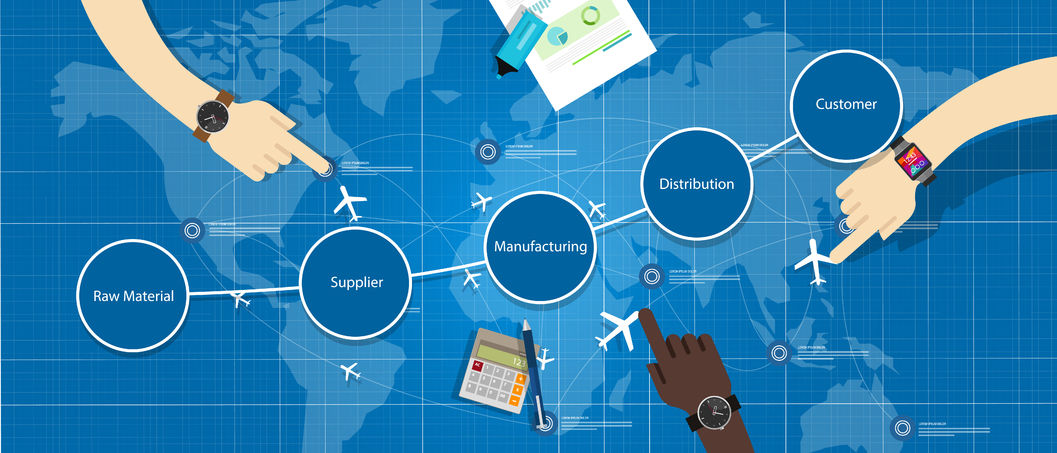Air International Uses Cloud PLM to Go from 0 to 60

Air International Thermal Systems is a global manufacturer of automotive HVAC and powertrain cooling systems. Founded in Port Melbourne, Australia in 1967, the company has expanded around the world by following the customer to China in 1995, to the United States in 1997, to Mexico in 2007, to Thailand in 2008, to India and Germany in 2014, and to the United Kingdom in 2015. In 2016, with the establishment of business in Brazil, Air International Thermal Systems will have a global presence that covers 80% of the world’s automotive market.
Strategies that have helped Air International grow are an effective use of capital and locating offices close to its customers. These strategies were born out of necessity in the late 1990s when launching the business in the United States. Air International was new to North America and did not have any manufacturing infrastructure set up there.
As a result, the company searched for potential supplier partners who had available capacity and were also located close to its customers. Automotive HVAC modules and powertrain cooling modules are large components and are costly to ship due to the low pack density. The automotive OEMs typically pay the cost of shipping inbound components to their assembly plants, so it is a competitive advantage for the automotive supplier to be located closer to the customer.
For the first several years, communication between Air International and its outsourced partners was manual. Bids were developed on paper and spreadsheets, which spawned the seemingly never-ending rounds of follow-up questions, faxes, and emails. These multiple copies and versions of supporting documents were prone to error and tedious to track. As a result, Air International could only obtain a limited number of quotes for any new project—and had difficulty ensuring it was always taking advantage of the best quote available. Air International realized this increasingly complex manual communication was forming a barrier that was preventing the company from extracting all the benefits of its contract manufacturing strategy.
“Lacking the ability to afford a six-figure product lifecycle management (PLM) system, Air International did the best it could with spreadsheets, emails and, FTP sites. It hand-delivered and overnighted CDs until 2002,” said Michael Repetto, business director at Air International.
Repetto briefly considered client-server PLM systems; however, these systems were too expensive to install, required additional IT staff (forever), necessitated costly, disruptive system upgrades, and didn’t offer real-time collaboration for external partners or globally dispersed employees. And they required months of downtime to install as opposed to weeks for a cloud-based system.
“We would have had to hire significant additional IT staff just to set up a client-server PLM system. This would have been a big distraction at a time when our project schedule could not be impacted. We could have given access to some of our partners with additional customization and VPNs, but most of them don’t have the IT infrastructure in place to allow that,” Repetto notes. “We needed a solution that could be deployed quickly and would meet all of our functional requirements while optimizing our current resources. A client-server PLM system would have required significant upfront investment and would have taken much longer to implement. And we couldn’t even be sure it would give us a better way to manage our outsourced manufacturing.”
After a review of available solutions, Repetto recommended Air International choose Arena PLM from Arena for the following advantages:
- Bill of materials (BOM) management functionality gives the entire design chain a unified view of all product design information. All the time.
- Paperless product change management functionality ensures streamlined processes.
- Employees and suppliers alike can access the latest product information.
- Ease of implementation that would allow Air International—and its suppliers—to begin using Arena PLM instantly.
- A low total cost of ownership due to the absence of IT overhead, the cost-effective subscription model, automatic software upgrades, and lack of large upfront investment.
Repetto adds that Arena PLM also makes the process easier for new suppliers. “For instance, if a potential new supplier is interested in selling to Air International, once we send the supplier an invitation, sales reps can upload a virtual tour of their facility, presentations, and data sheets that give us a complete picture of their capabilities,” he says. “And since there’s no need to purchase a site license for quotations, we can source from suppliers all over the world, which enables the company to access much lower pricing through increased competition.”
Being able to utilize a supplier’s spare available capacity is also a competitive advantage for Air International, as minimal incremental investment is required to execute a project. In many cases, Air International has co-located with its suppliers to make even better use of their available capacity.
Air International has a long history of listening to the customer and finding solutions to their problems. These strategies have helped the company enter new markets quickly and effectively with managed investment while addressing its customer’s problems. Of course, none of this growth would be possible without excellent product development and quality. When Air International contacted Arena in 2002, they were looking for a good and cost-effective product lifecycle management solution. Since then, Air International has delivered several flawless product launches while using Arena PLM.
Some recent examples of problems solved include a program win in 2011 that Air International was able to finalize by being only 80 miles from the customer. This saved the OEM several dollars per HVAC in logistics costs. Another success was the 2014 award where they were able to locate close to the OEM. This same OEM has just awarded Air International a similar project in Mexico, where their facility is located 5 minutes from the customer’s plant—benefitting Air International and customer alike. The latest award could not have happened without the excellent product development and quality.
To see the full extent of how Arena PLM helps Air International, download the case study.


